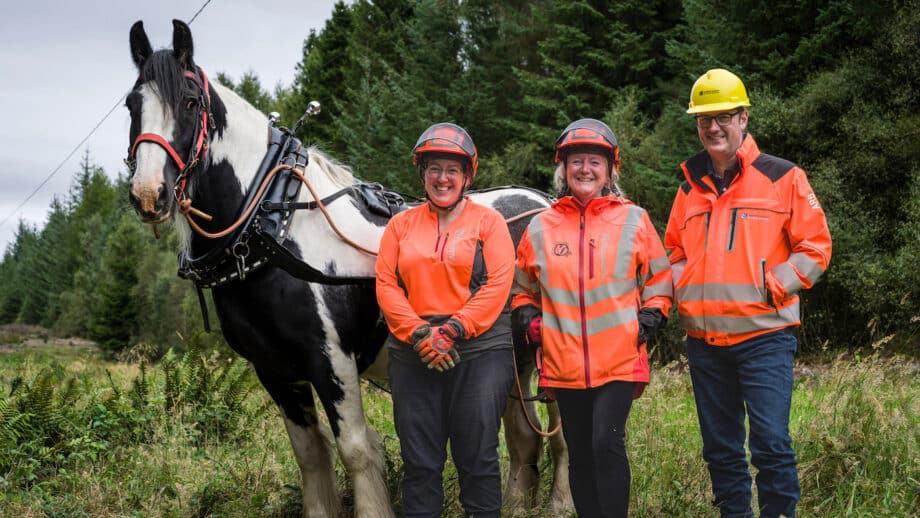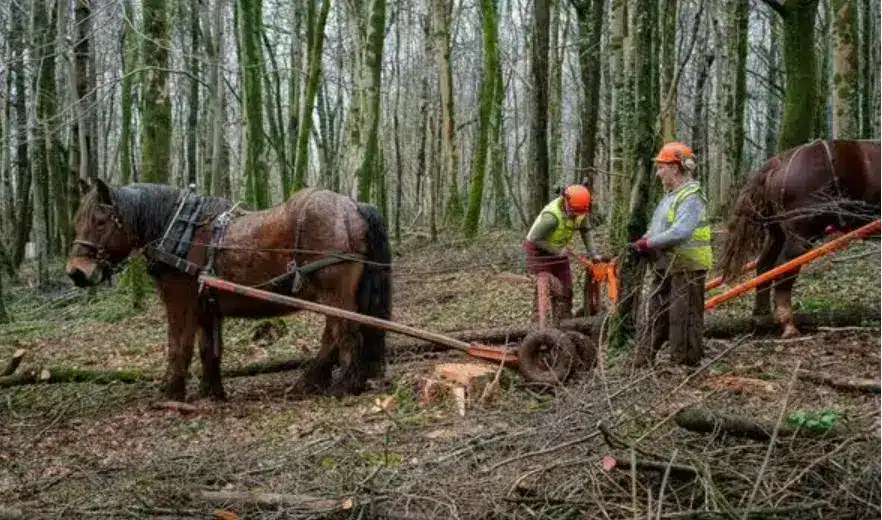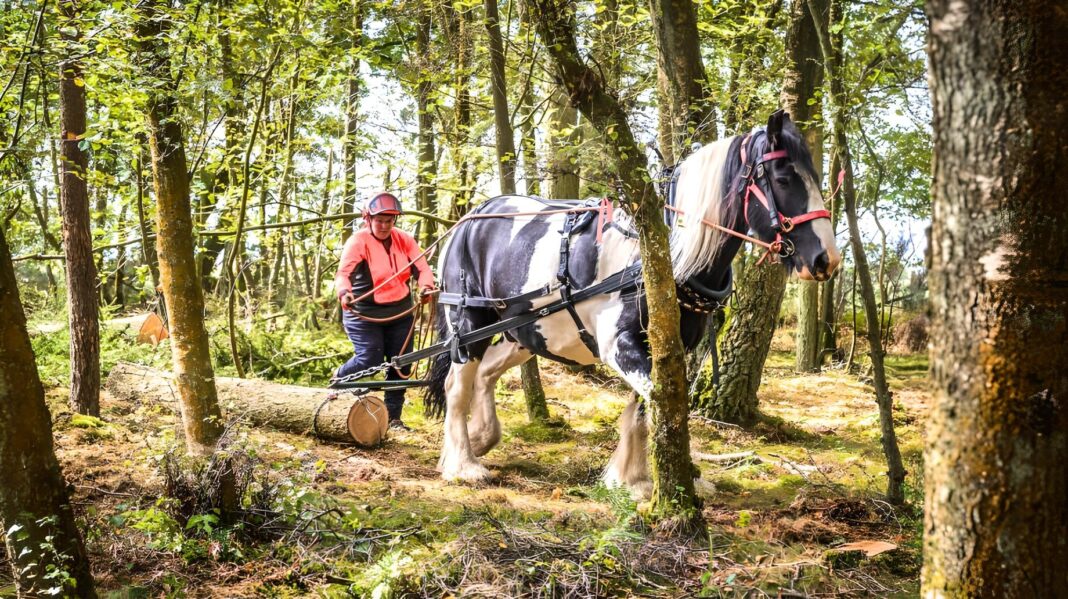Real horsepower is being used to reduce the impact of tree removal needed to maintain Scotland’s electricity network. It is the first instance since the network was fully modernised that the Scottish & Southern Electricity Networks (SSEN) Transmission – responsible for powering 3.8 million households in Northern Scotland and Central England – is extracting timber with heavy horses to avoid unnecessary environmental damage.
Wood Central understands that SSEN Transmission is turning back the clock and working with Future Forestry, who said: “There is still a place for horse logging where access, space, environmental, or ground sensitivities don’t allow for modern-day machinery.”
The practice predating Roman times is an ancient and sustainable forest management technique used for thousands of years. It uses horses to pull timber from felling areas without needing large machines and with minimal damage to the ground and other plants.

Already, SSEN Transmission has recruited equine team members Eli, Luke and Ben to help with sustainable harvesting. According to Angie Smith, director of operations for Future Forestry, “It has always been our mission to be forward-thinking and invest in new technologies to make work safer and more efficient, but time-saving isn’t always the main priority on many of our worksites.”
“We have to consider the environment we are working in and how we can leave a site having caused as little impact as possible on what remains. It’s always a balance between getting value for our clients and mitigating our impact.”
Angie Smith, director of operations for Future Forestry on the role that horse logging can play in maintaining energy networks in heavily forested areas.
“When I heard that John’s previous owner was retiring from working with the heavy horses, I knew we had a place for them, even on some of our commercial contracts. Our fantastic equine manager, Annie Hutchison, spent a year settling them in after their move from Rochdale and has also been helping with staff training. We currently have four staff members who have undergone horse logging training courses as members of the British Horse Loggers.”
The horses are already working on several SSEN Transmission projects across the UK, including one near Brechin in Angus: “Future Forestry’s work on the spur that connects the overhead line to the Brechin substation is the final phase of the resilience work on the 132kV overhead line circuits from Tealing to Arbroath,” an SSEN Transmission spokesperson said. The site was classed as high-risk owing to the size and position of the conifers, which had to be removed.”
“Helping to minimise disturbance, manual tree cutting along with horse logging was used to sensitively extract timber from amongst the broadleaf trees that are being retained as a space that the surrounding properties use.”
SSEN Transmission’s Martin Sangster said the company was supportive when Future Forestry suggested the idea: “It also alleviated the concerns of nearby residents who were worried all trees were being removed with heavy machinery,” he said. After learning the horse logging technique, they became supportive of the plans and appreciative of the steps to reduce the impact of felling operations.”
British Horse Loggers Charitable Trust chair Steffi Schaffler said: “Horse logging is a method of extracting timber from forestry sites that is sensitive, sustainable and effective. Horses don’t replace machines but do jobs that wouldn’t be possible with other methods. They make it possible to keep the forestry system intact while extracting large amounts of timber without damage to the ground or the standing crop.”

The use of horses comes after Wood Central revealed last year that horses are now replacing machines in clearing infected trees from Welsh forests. According to Chris Rees, the forest operations team leader for Natural Resources Wales, “Horse logging has been around for thousands of years and is still a viable and sustainable method of extracting timber in modern-day forest operations.
“Using horses rather than machines in environmentally sensitive areas gives us a low impact and sympathetic solution, particularly for managing important ancient woodlands and archeologic sites,” he said. “We used horses in other South Wales Central woodlands last year, and we’re looking forward to keeping this wonderful tradition alive in Fforest Fawr.”






